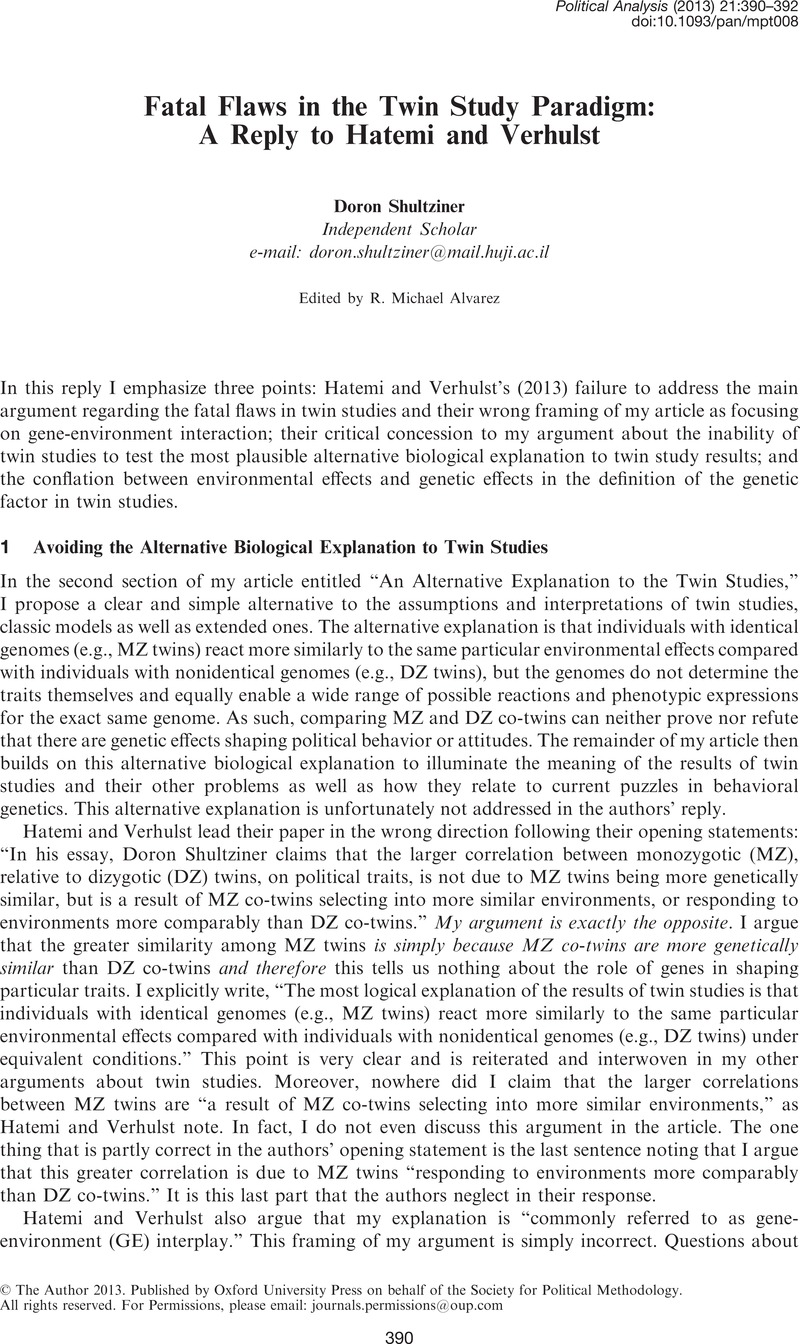Crossref Citations
This article has been cited by the following publications. This list is generated based on data provided by Crossref.
Moore, David S.
2016.
The Developmental Systems Approach and the Analysis of Behavior.
The Behavior Analyst,
Vol. 39,
Issue. 2,
p.
243.
Kato, Junko
Sakaiya, Shiro
and
Takesue, Hirofumi
2016.
Neurocognitive Approach and Political Science:.
Kodo Keiryogaku (The Japanese Journal of Behaviormetrics),
Vol. 43,
Issue. 2,
p.
143.
Lempert, Daniel
2018.
On Evolutionary Game Theory and Team Reasoning.
Revue d'économie politique,
Vol. Vol. 128,
Issue. 3,
p.
423.



